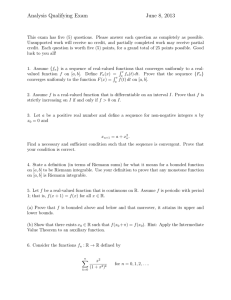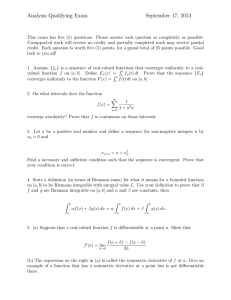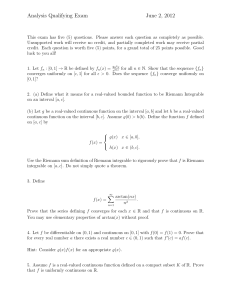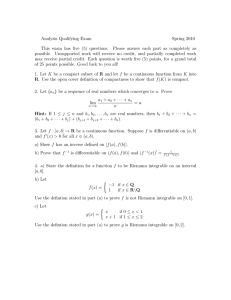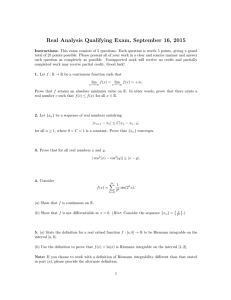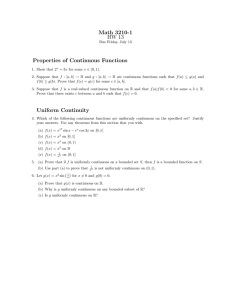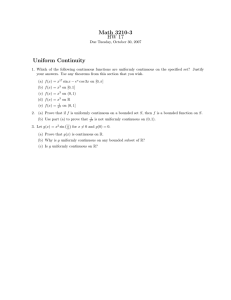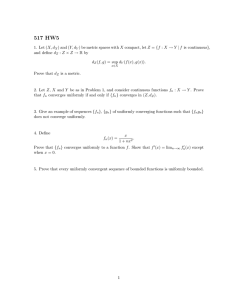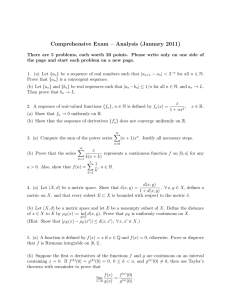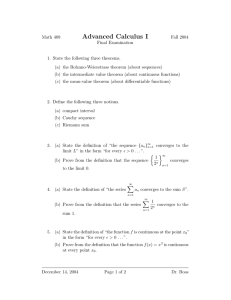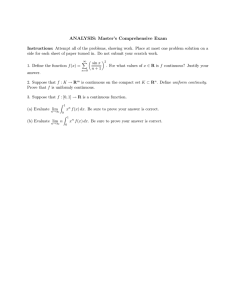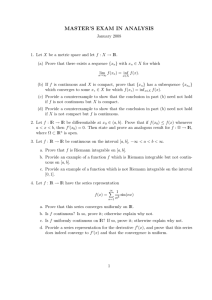Analysis Qualifying Exam September 2012
advertisement
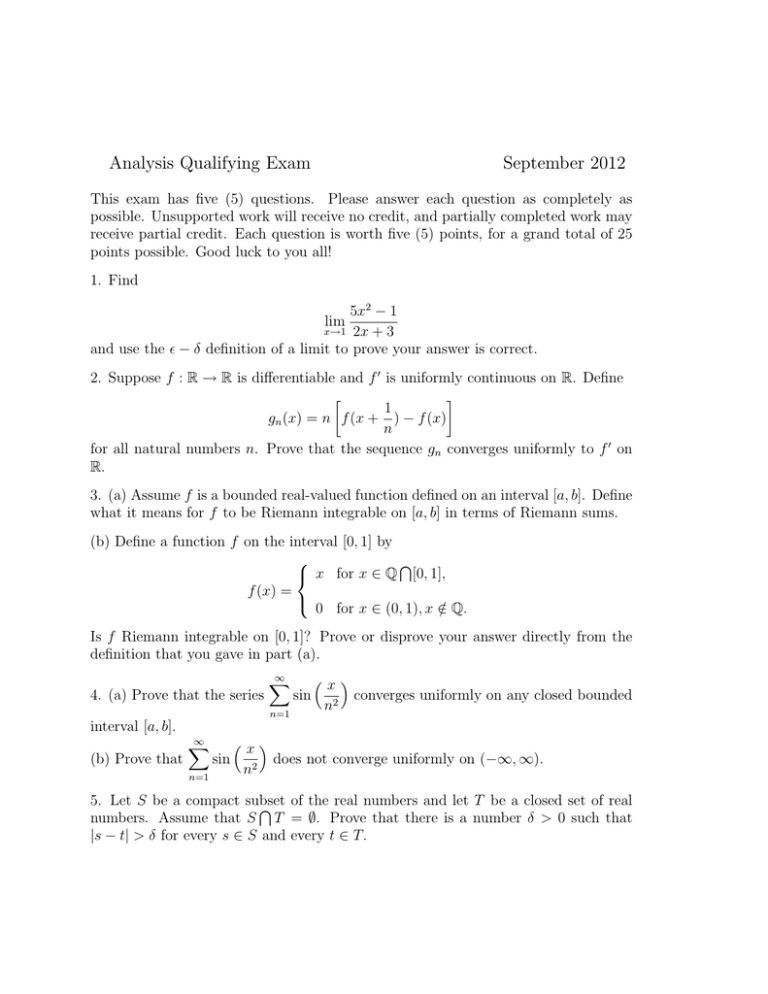
Analysis Qualifying Exam September 2012 This exam has five (5) questions. Please answer each question as completely as possible. Unsupported work will receive no credit, and partially completed work may receive partial credit. Each question is worth five (5) points, for a grand total of 25 points possible. Good luck to you all! 1. Find 5x2 − 1 x→1 2x + 3 and use the − δ definition of a limit to prove your answer is correct. lim 2. Suppose f : R → R is differentiable and f 0 is uniformly continuous on R. Define 1 gn (x) = n f (x + ) − f (x) n for all natural numbers n. Prove that the sequence gn converges uniformly to f 0 on R. 3. (a) Assume f is a bounded real-valued function defined on an interval [a, b]. Define what it means for f to be Riemann integrable on [a, b] in terms of Riemann sums. (b) Define a function f on the interval [0, 1] by T x for x ∈ Q [0, 1], f (x) = 0 for x ∈ (0, 1), x ∈ / Q. Is f Riemann integrable on [0, 1]? Prove or disprove your answer directly from the definition that you gave in part (a). 4. (a) Prove that the series ∞ X n=1 sin x converges uniformly on any closed bounded n2 interval [a, b]. ∞ X x (b) Prove that sin 2 does not converge uniformly on (−∞, ∞). n n=1 5. Let S be a compact subset T of the real numbers and let T be a closed set of real numbers. Assume that S T = ∅. Prove that there is a number δ > 0 such that |s − t| > δ for every s ∈ S and every t ∈ T.
